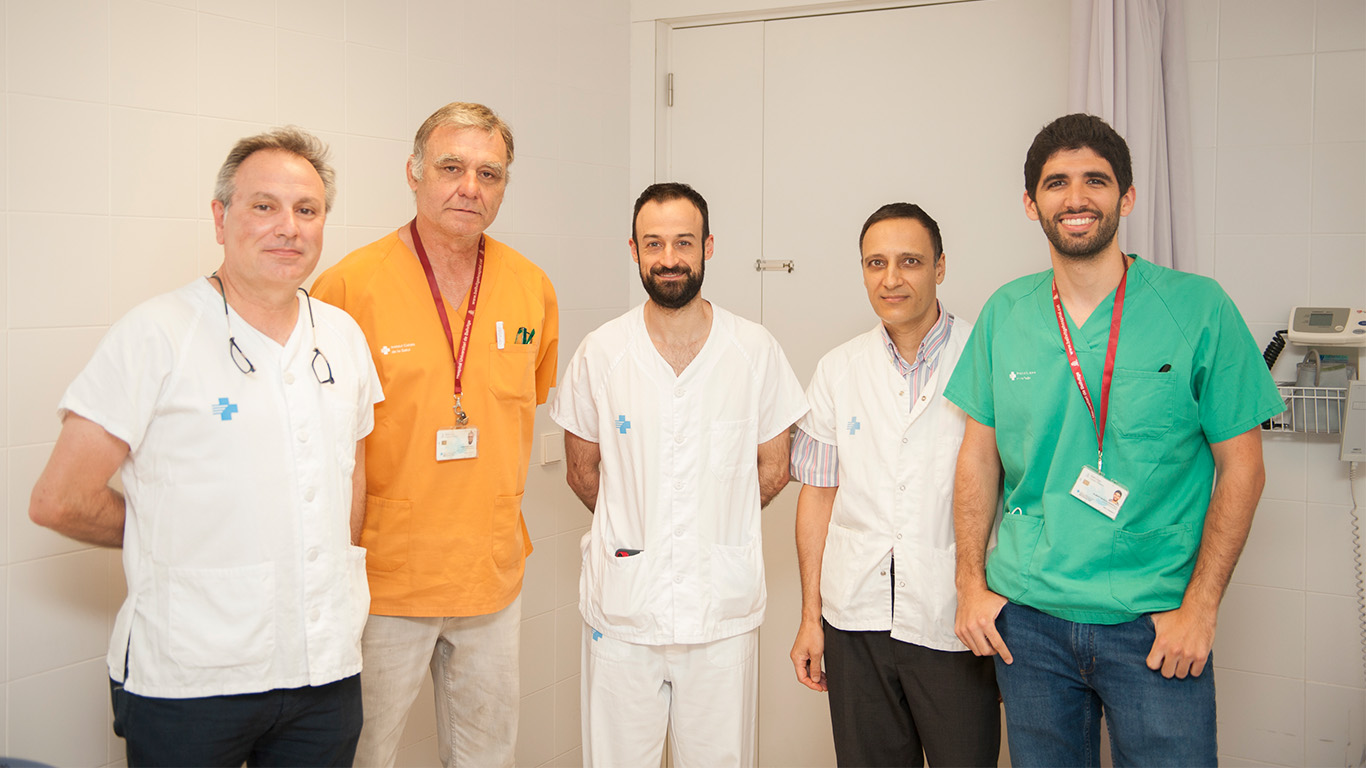A multicenter study led by the Neurological and Neurogenetic Diseases Research Group of the Bellvitge Biomedical Research Institute (IDIBELL) and the Bellvitge University Hospital (HUB) in which 18 Headache Units from all State participated, determines that anti-CGRP drugs are also effective and safe in people over 65 years of age.
Having this information available was a pending issue since this patient profile was excluded from clinical trials. Now they show that this treatment represents a safe and effective therapeutic option for chronic migraine management in these patients.
Anti-CGRP antibodies are drugs available since 2019 that block CGRP, a protein involved in the pain and vasodilatation processes associated with migraine. Due to their specific action on the protein, they are very well tolerated with no side effects -except constipation, because the protein is also found in the intestines neurons- since they block the pain pathway associated with migraine.
The results of the multicenter study, published this June in the scientific journal The Journal of Headache and Pain, determine that 60% of patients presented a reduction of more than 50% in the number of days they suffered from migraine. A real-life observational study has been carried out with a sample of 162 patients, 74.1% of whom were women.
After six months of treatment with any monoclonal antibody (erenumab, galcanezumab, and fremanezumab), patients reduce the migraine days average from eighteen to eight. These results are comparable to what was already known about monoclonal antibodies in the general population.
In parallel, the frequency of headaches and the analgesic consumption in study patients significantly reduced and the clinical evaluation scales improved.
More therapeutic arsenal to combat chronic migraine
“Migraine is a genetic disease without a cure and that fluctuates throughout life. In elderly patients, there is a greater risk of chronification due to the evolution time, due to multiple failures of preventive treatments and associated comorbidities”, explained Dr. Albert Muñoz-Vendrell, IDIBELL researcher and neurologist at the Hospital de Bellvitge Headache Unit.
People over the age of 65 were not included in clinical trials of monoclonal antibodies, so it was unknown whether the monoclonal antibodies were as effective as in younger patients.
“The hypothesis was that they could suffer from more safety problems since CGRP is a vasodilator and theoretically if the protein is blocked, there could be an increased cardiovascular risk in elderly patients with hypertension, dyslipidemia, or a history of previous cardiovascular events,” appoints to the IDIBELL researcher. This latest study clears up the pending doubts about these treatments that extend the current approach to migraine, with good tolerance and safety.
It is estimated that nearly 900,000 people suffer from migraine in Catalonia, especially young women. Although the prevalence is lower in those over 65 years old, comorbidity and chronicity may limit the prescription and response to treatment. The impact of migraine on the patients’ life quality is very serious since migraine attacks represent an almost complete disability because the symptoms are not limited to headache, but are also associated with intolerance to external stimuli, physical activity, and nausea.
In fact, the WHO considers it the sixth most disabling disease in the world and is the second cause of disability among neurological diseases, only behind stroke.
The Bellvitge Biomedical Research Institute (IDIBELL) is a biomedical research center created in 2004. It is participated by the Bellvitge University Hospital and the Viladecans Hospital of the Catalan Institute of Health, the Catalan Institute of Oncology, the University of Barcelona and the City Council of L’Hospitalet de Llobregat.
IDIBELL is a member of the Campus of International Excellence of the University of Barcelona HUBc and is part of the CERCA institution of the Generalitat de Catalunya. In 2009 it became one of the first five Spanish research centers accredited as a health research institute by the Carlos III Health Institute. In addition, it is part of the “HR Excellence in Research” program of the European Union and is a member of EATRIS and REGIC. Since 2018, IDIBELL has been an Accredited Center of the AECC Scientific Foundation (FCAECC).

